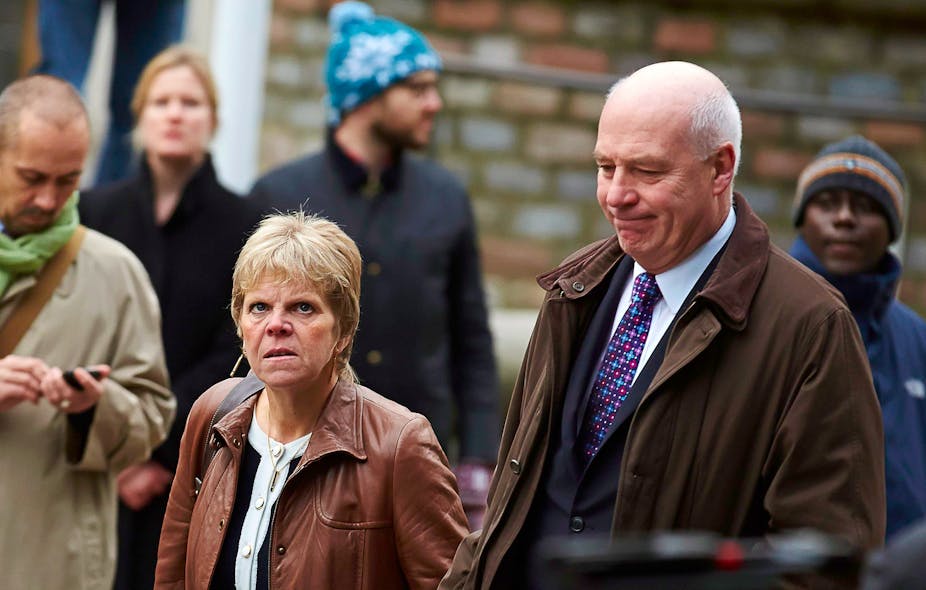The Leveson Inquiry, set up by the UK coalition government in response to accusations of phone hacking at the now defunct Murdoch newspaper the News of the World, has reported – calling for press regulation enshrined in law designed to prevent the press “wreaking havoc” and protect “innocent people”. The impact on freedom of speech – if the government even accepts the recommendations – is the subject of endless debate but Leveson’s statement is relatively quiet on the real issues behind the culture of press arrogance which led to its getting out of hand in the first place.
The most revealing aspect of the collective evidence was not in fact the lengths to which journalists will go to break stories. The public disgust over bribes to the police and hacking the phones of murder victims was tempered by the fact that most people don’t consider the tabloids to be particularly moral. That they’re also corrupt and even criminal isn’t too much of a stretch.
Much more shocking was that the press had been getting away with it for years without ending up in court (a previous inquiry was dropped). Further revelations about the disproportionate influence that certain sections of the media hold in society went some way to explain. Testimony after testimony showed the quite intricate and intimate connections between some of the most important people across British public life and at the heart of them all were representatives from the media. Pyjama parties at Downing Street attended by Rupert Murdoch’s wife showed that it wasn’t necessarily the press who were doing the courting.
That the Murdoch news outlets, at least informally, have had agreements with various parties offering support, intensifying in the run-up to elections, in return for commercial advantage has often been mooted. In Britain, the Murdoch newspapers supported the Conservatives under Thatcher, but prior to the 1997 election, switched support to New Labour, following an alleged meeting with then leader Tony Blair.
In his testimony, Rupert Murdoch flatly stated that he “never asked a prime minister for anything”, but evidence from Gordon Brown suggested that the Murdoch empire was clearly looking for support for its UK media expansion, if not directly asking for it. Texts from culture secretary Jeremy Hunt, who was responsible for overseeing the bid from News Corp to take full control of BSkyB, to James Murdoch like “Congrats on Brussels. Just Ofcom to go” might just be circumstantial, but the coincidence of interests is undeniable.
Based on stuff like this, and of course the expenses scandal of 2009, it’s perhaps not surprising that the public are switching off from politics. Polls consistently show that public trust in politicians is at an all time low in the UK. But again it is the media who are largely responsible for the way we see our politicians; their agenda-setting powers play a crucial role in shaping politicians’ images, both collectively and individually. The most obvious impact is the need for political leaders to be media-friendly - William was never going to cut it.
But there is another side to this; the way media attacks influence who is hired and fired. While Jeremy Hunt survived the revelations about his inappropriate dealings with the Murdoch empire, Tory Chief Whip Andrew Mitchell was forced to go following his Downing Street rant in spite of the support of his party. He was unable to draw a line under the affair was the problem – he tried but the media wouldn’t let him.
This goes way beyond the Murdoch papers to the wider popular press. It was comedian Steve Coogan in his testimony that compared the media to “the mafia” – if you dare to take them on they will “use their newspapers as a weapon against you”. Ironically, in an era where we hear so much about the death of the newspaper industry, digital media appear to only intensify these attacks, and as a result their influence. Coogan also said that he knew others who felt the same but didn’t have “the stomach” to take them on; it’s not a great leap to assume that some politicians, and maybe even some at the top, are also running scared.
But that’s why the Leveson was important and necessary – it brought some of these issues out into the open. On the stand, big political players including David Cameron and Alistair Campbell admitted that the political classes had conceded too much power to the media.
It was the confidence borne from this power that that led sections of the media to believe they were untouchable. Leveson acknowledged the damaging impact of this cosiness and the need for “a little more transparency”, but hasn’t recommended significant changes in this area.
Hopefully his proposed regulation will lead to a curbing of some of the excesses of the press, but it does feel a little like dealing with the effects rather than the underlying cause.

